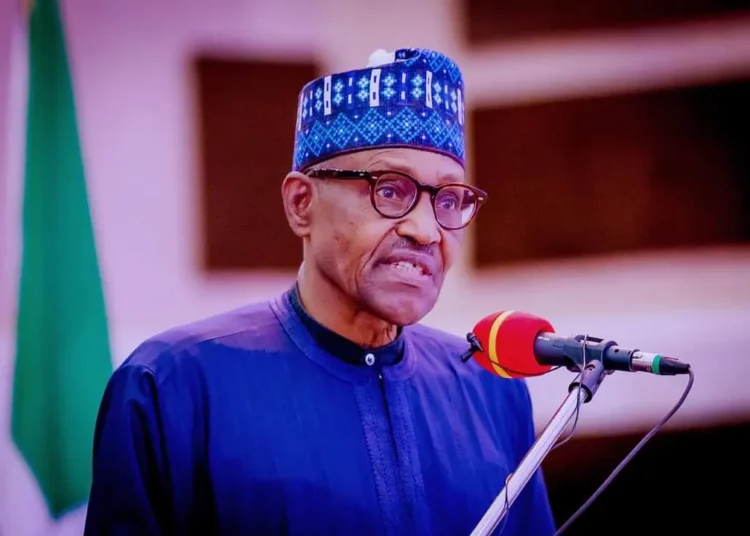The death of former President Muhammadu Buhari, Nigeria’s seventh military head of state and 15th civilian president, brings to a close one of the most consequential and complex political journeys in the history of Nigeria. The man whom millions fondly called Mai Gaskiya — the honest one — died at 82 in a London hospital, far away from the Daura soil that birthed and shaped him, but not far from the heart of a nation whose destiny he shaped for five decades.
His death, confirmed by the Presidency has triggered an outpouring of tributes from across the world: from President Bola Tinubu, who called him a man of honour and quiet strength; to former presidents Olusegun Obasanjo, Ibrahim Babangida, and Goodluck Jonathan, who acknowledged him as a patriot and statesman; to global institutions like the African Union and ECOWAS, which credited him with helping strengthen regional peace and democratic norms.
Indeed, his story is in many ways the story of Nigeria itself — its promises, its paradoxes, its pain, and its perseverance. Simply put Buhari, in his lifetime, was an enigma.
Born on December 17, 1942, in the ancient town of Daura in present-day Katsina State, Buhari rose from modest beginnings as the 23rd child of a Fulani chieftain to become a cadet officer in the Nigerian Army in 1962. His early military service, particularly during the Nigerian Civil War, demonstrated a certain tenacity and discipline that would later come to define both his military and civilian leadership styles.
His first brush with power came not through the ballot but through the barrel, as he led the December 31, 1983 coup that overthrew the civilian government of President Shehu Shagari. As military head of state, Buhari’s War Against Indiscipline (WAI) became both an emblem of order and a symbol of repression. He ruled with iron resolve, implementing harsh decrees, banning strikes, and retroactively executing drug offenders. But even critics acknowledged his spartan lifestyle, his fiscal prudence, and his almost zero-tolerance approach to corruption.
Overthrown in 1985 by General Ibrahim Babangida, Buhari would spend the next 15 years mostly in the shadows, emerging briefly as Chairman of the Petroleum Trust Fund (PTF) under the General Sani Abacha regime, where he earned praise for effective resource deployment.
Yet the democratic experiment that had once ended his military career would, years later, provide him the platform to reinvent himself. Buhari returned to public life through the ballot, contesting and losing presidential elections three times — in 2003, 2007, and 2011 — before finally breaking the jinx in 2015 when he defeated incumbent President Goodluck Jonathan. It was a watershed moment in Nigeria’s democratic evolution: never before had an opposition candidate unseated a sitting president.
The eight years that followed were, as expected, deeply polarising. His supporters saw a president who embodied prudence, austerity, and incorruptibility. His detractors saw a leader out of touch, aloof, and increasingly intolerant of dissent. His health challenges — including a 104-day medical absence in 2017 — cast a long shadow over his second term, but they also humanised him.
Under Buhari, the fight against Boko Haram intensified, albeit without final victory. He launched ambitious infrastructure projects, expanded social investment programmes like N-Power, and recovered stolen assets through a whistleblower policy. Yet, economic indicators told a different story: two recessions, rising inflation, ballooning debt, and growing disaffection among youth.
The #EndSARS protests of 2020 captured the frustrations of a generation disillusioned by state brutality and economic hardship. Buhari’s measured response — seen by some as dismissive — further widened the gulf between his government and a section of the youth.
Still, history will remember him as a man who twice ruled Nigeria — first by force, then by franchise. A leader whose personal lifestyle remained austere in an age of opulence. A man who, despite his flaws, remained consistent in his convictions: on integrity, discipline, and national cohesion.
In retirement, he sought solitude in Daura and later Kaduna, preferring the calm of private life to the storm of political commentary. But Nigeria never truly left him. His home remained a pilgrimage site for politicians and admirers alike, a testament to his enduring influence.
With his passing, Nigeria mourns not just a former president, but the closing of a generational chapter. For better or worse, Muhammadu Buhari’s life was intertwined with Nigeria’s destiny. In a nation where public trust is scarce and leadership is contested terrain, Buhari stood as a paradox: loved and loathed, praised and criticised, remembered and debated.
His death calls for sober reflection — not just on the man, but on the state of our nation. It is a reminder that legacy is not built in the length of time spent in office, but in the values espoused, the decisions taken, and the trust earned.
As the national flag flies at half-mast, as the solemn procession returns his body to Daura for burial, as world leaders pen their tributes, Nigeria must ask itself: what truly defines leadership?
Buhari’s answer, even in death, is clear — Mai Gaskiya lived by his truth. The nation must now live up to his ideal.
May his soul find peace. May his legacy provoke honest introspection. And may history, in the fullness of time, be kind.





